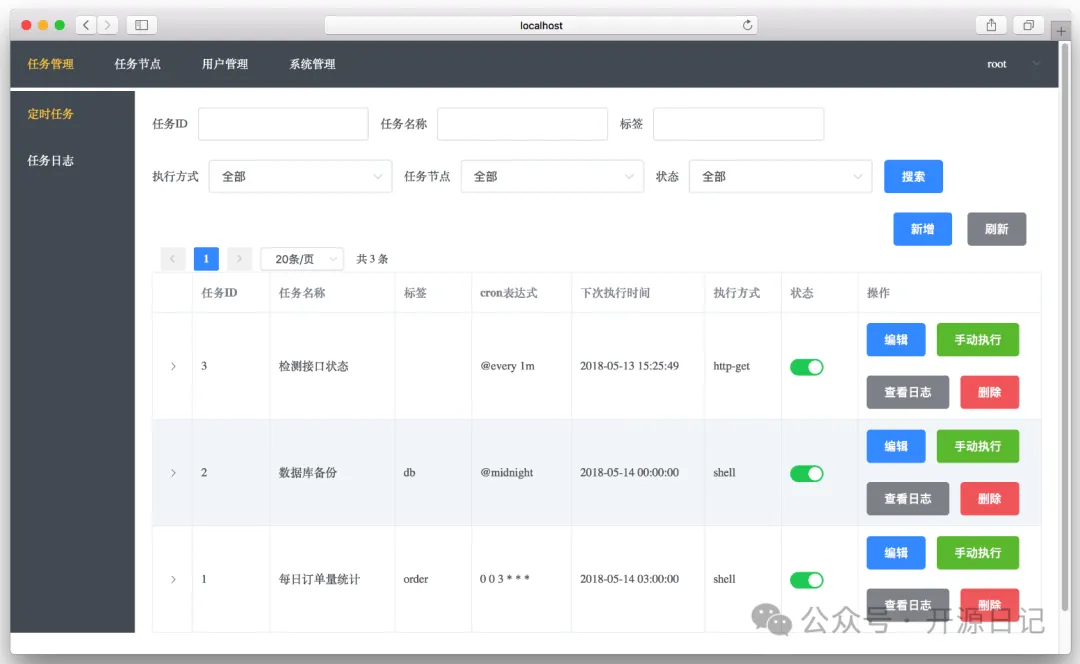目录
四种参数
仅限关键字参数
内省中的函数参数
函数注解
四种参数
Python函数func定义如下:
def func(first, *args, second=\"Hello World\", **kwargs):
print(first)
print(args)
print(second)
print(kwargs)
func(\"dongfanger\", \"san\", py=\"good\")
运行后会输出:
dongfanger
(\'san\',)
Hello World
{\'py\': \'good\'}
它有四种参数:
first是定位参数,positional parameter,不可省略。
*args是可变参数,arguments,存入元组。
second是默认值参数,default argument values,可以省略。
**args是关键字参数,keyword arguments,存入字典。
func函数的调用方式有以下这些:
①传入单个定位参数。
func(\"dongfanger\")
dongfanger
()
Hello World
{}
②第一个参数后的任意个参数会被*args捕获,存入一个元组。
func(\"dongfanger\", \"a\", \"b\", \"c\")
dongfanger
(\'a\', \'b\', \'c\')
Hello World
{}
③没有明确指定名称的关键字参数会被**kwargs捕获,存入一个字典。
func(\"dongfanger\", j=\"1\", k=\"2\")
dongfanger
()
Hello World
{\'j\': \'1\', \'k\': \'2\'}
④second只能作为关键字参数传入。
func(\"dongfanger\", second=\"cool\")
dongfanger
()
cool
{}
⑤定位函数也能作为关键字参数传入。
func(first=\"san\")
san
()
Hello World
{}
⑥字典前加上**,其所有元素作为单个参数传入,同名键会绑定到对应具名参数上,余下的被**args捕获。
my_dict = {\"first\": \"dongfanger\", \"location\": \"cd\", \"second\": \"cool\", \"age\": \"secret\"}
func(**my_dict)
dongfanger
()
cool
{\'location\': \'cd\', \'age\': \'secret\'}
除了这四种参数,还有一种Python3新增加的仅限关键字参数。
仅限关键字参数
仅限关键字参数(keyword-only argument)是Python3的新特性,func函数的second参数就是仅限关键字参数,“仅限”的意思是说,只能通过关键字参数指定,它一定不会捕获未命名的定位参数。
假如把参数位置调整一下定义another_func函数:
def another_func(first, another_second=\"Hello World\", *args, **kwargs):
print(first)
print(another_second)
print(args)
print(kwargs)
another_func(\"dongfanger\", \"a\", \"b\", \"c\")
输出会变成:
dongfanger
a # 注意这里
(\'b\', \'c\')
{}
another_second不是仅限关键字参数,而只是默认值参数,因为它捕获到了定位参数。
由此得知,定义仅限关键字参数,必须把它放到*args参数后面,就像func函数一样,反例是another_func函数。
还有第二个方法定义仅限关键字参数,在签名中放一个*:
>>> def f(a, *, b): # b是仅限关键字参数 ... return a, b ... >>> f(1, b=2) # 只能传关键字参数 (1, 2) >>> f(1, 2) # 不能传定位参数 Traceback (most recent call last): File \"<input>\", line 1, in <module> TypeError: f() takes 1 positional argument but 2 were given >>> f(1, 2, 3) # 不能传定位参数 Traceback (most recent call last): File \"<input>\", line 1, in <module> TypeError: f() takes 1 positional argument but 3 were given
仅限关键字参数不一定要有默认值,就像b一样,强制必须传入实参。
内省中的函数参数
函数内省的意思是说,当你拿到一个“函数对象”的时候,你可以继续知道,它的名字,参数定义等信息。这些信息可以通过函数对象的属性(一些双下划线的魔法方法)得到。
对于func函数:
def func(first, *args, second=\"Hello World\", **kwargs):
print(first)
print(second)
print(args)
print(kwargs)
和another_func函数:
def another_func(first, another_second=\"Hello World\", *args, **kwargs):
print(first)
print(another_second)
print(args)
print(kwargs)
【__defaults__属性】
元组,保存着定位参数和关键字参数的默认值。
print(func.__defaults__) # None print(another_func.__defaults__) # (\'Hello World\',)
【__kwdefaults__属性】
字典,保存仅限关键字参数。
print(func.__kwdefaults__) # {\'second\': \'Hello World\'}
print(another_func.__kwdefaults__) # None
【__code__属性】
code对象引用,code对象自身有很多属性,其中包括参数名称。
print(func.__code__.co_varnames) # (\'first\', \'second\', \'args\', \'kwargs\') print(another_func.__code__.co_varnames) # (\'first\', \'another_second\', \'args\', \'kwargs\')
另外还可以使用inspect库的signature方法来查看内省中的函数参数:
from inspect import signature print(signature(func)) # (first, *args, second=\'Hello World\', **kwargs)
框架和IDE等工具可以使用这些信息验证代码。
函数注解
如果刷过力扣算法题,那么对函数注解就不会陌生。比如:
def clip(text:str, max_len:\'int > 0\'=80) -> str:
pass
参数:后面是注解表达式,可以用来注解参数类型和约束。如果参数有默认值,注解放在参数名和=号之间。
可以在函数末尾的)和:之间添加->和注解表达式,来对返回值添加注解。
注解表达式可以是任何类型,最常用的类型是类(如str或int)和字符串(如\’int > 0\’)。
函数注解只是个注解,Python对注解所做的唯一的事情是,把它们存入函数的__annotations__属性中:
print(clip.__annotations__)
#{\'text\': <class \'str\'>, \'max_len\': \'int > 0\', \'return\': <class \'str\'>}
Python不做检查,不做强制,不做验证,什么操作都不做!注解只是元数据,可以供框架和IDE等工具使用。
以上就是Python函数参数和注解的使用的详细内容,更多关于Python函数参数和注解的资料请关注免费资源网其它相关文章!










暂无评论内容